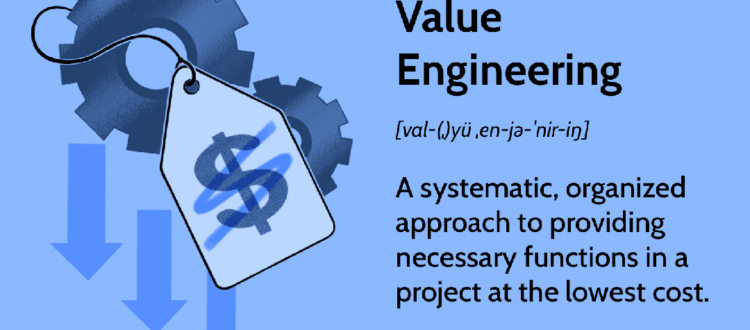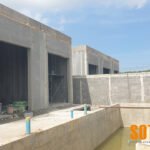The Power of Value Engineering in Phuket
In the vibrant and rapidly growing region of Phuket, construction and development projects are on the rise. With the allure of pristine beaches, a rich cultural heritage, and a booming tourism industry, the demand for high-quality construction is higher than ever. In this competitive landscape, construction companies and contractors must strive for excellence in every aspect of their projects. One such approach gaining popularity is “Value Engineering.” This blog will delve into the concept of Value Engineering in construction and explore how Phuket’s construction companies and contractors can utilize this powerful technique to achieve remarkable outcomes.
1. Understanding Value Engineering
Value Engineering (VE) is a systematic and structured approach to improve the value of a project while optimizing costs. It aims to maximize the overall benefits, quality, and performance of the final construction product or facility. By identifying and eliminating unnecessary expenses without compromising on safety or functionality, VE ensures the best possible value for clients, stakeholders, and end-users.
2. The Relevance of Value Engineering in Phuket
As Phuket continues to grow and attract investors, construction companies and contractors face unique challenges. Balancing budget constraints, meeting regulatory requirements, and delivering projects within tight schedules require innovative solutions. Value Engineering aligns perfectly with these demands, offering a proactive approach to achieve the best outcomes without overspending.
3. Key Principles of Value Engineering
a. Function Analysis: Understanding the primary purpose of each component and ensuring it fulfills its intended function efficiently.
b. Creativity and Innovation: Encouraging an open-minded approach to explore alternative methods and materials that offer better value.
c. Life-Cycle Cost Analysis: Considering the total cost of ownership over the project’s lifespan, including maintenance and operational expenses.
d. Collaboration: Promoting effective communication and cooperation among all project stakeholders to gather diverse insights and ideas.
4. Value Engineering Process in Construction
a. Information Gathering: Comprehensive data collection to understand the project’s scope, goals, budget, and limitations.
b. Function Analysis: Identifying the core functions of each element within the construction project.
c. Creative Idea Generation: Brainstorming sessions to explore alternative approaches and innovative solutions.
d. Evaluation and Selection: Assessing the feasibility, benefits, and potential risks of proposed ideas.
e. Implementation: Incorporating the approved changes into the project plan and executing them efficiently.
5. Benefits of Value Engineering in Phuket Construction
a. Cost Savings: Optimizing expenses without compromising on safety and quality.
b. Enhanced Quality: Ensuring that every element serves its purpose effectively.
c. Faster Project Delivery: Streamlining processes for improved efficiency and shorter timelines.
d. Sustainability: Integrating eco-friendly solutions to reduce environmental impact.
e. Client Satisfaction: Delivering value-added projects that align with clients’ vision and requirements.
6. Phuket Construction Company: Embracing Value Engineering
As a Phuket-based construction company, the adoption of Value Engineering can provide a competitive edge in the bustling market. By promoting a culture of innovation and optimization, companies can attract clients seeking high-value solutions for their investments.
7. Phuket Contractor: Driving Efficiency with Value Engineering
For contractors in Phuket, value engineering offers an opportunity to showcase expertise and creativity. By proposing innovative ideas and demonstrating cost-effective approaches, contractors can position themselves as valuable partners to construction companies and clients alike.
8. Real-World Examples
Highlighting successful projects in Phuket that benefited from value engineering, illustrating the positive impact on costs, timelines, and overall quality.
Conclusion
In the dynamic landscape of Phuket’s construction industry, value engineering emerges as a vital tool for sustainable growth and success. By implementing the key principles and processes of value engineering, Phuket’s construction companies and contractors can elevate their projects to new heights. Embracing innovation and efficiency will not only enhance project outcomes but also contribute to the overall development of the region.
Remember, the journey towards excellence through value engineering starts with understanding the true essence of each construction project—making sure it serves its purpose efficiently, effectively, and sustainably. Through this mindset, Phuket’s construction industry can continue to thrive and build a brighter future for the region.











